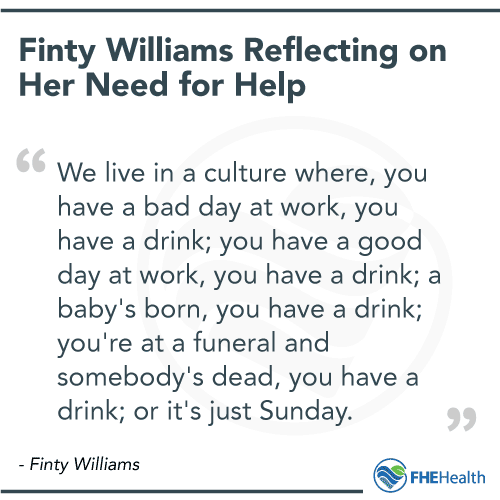
Dame Judi Dench: A Voice for Mental Health Awareness
With an acting career that spans over six decades, British actress Judi Dench has enjoyed worldwide recognition and numerous awards, including seven Laurence Olivier Awards, six film awards, 10 BAFTA awards, two Golden Globe Awards, two Screen Actors Guild Awards, ten critics’ awards, a Tony and an Academy Award, as well as several honorary awards. She made her stage debut in 1957 in “Hamlet” and gained international recognition in the 1990s for her character in the “James Bond” franchise. Among her most recognizable acting roles is that of Laura in “A Fine Romance,” a British sitcom in which she played opposite her real-life, late husband, Michael Williams.
In 1970, Dench was appointed an Officer of the Order of the British Empire; in 1988, a Dame Commander of the Order of the British Empire; and in 2005, a Member of the Order of the Companions of Honour. She is a patron of three dozen charities, including Alzheimer’s Society, UNICEF and Women Against Lung Cancer.
Dench and Williams married in 1971 and had one child, Tara Cressida Frances Williams, professionally known as Finty Williams, in 1972. Dench and Williams were married for nearly 30 years when he died from lung cancer at the age of 65.
The Struggle with Addiction
According to an interview with Dr. Christian Jessen in his podcast entitled Second Opinion, Judi Dench’s daughter Finty Williams’ experience with alcoholism began when she was in drama school. She described feeling inferior to her peers, saying, “At that point, I thought: ‘If they’re really drunk, then they won’t notice that I’m really, really boring and short and round— and don’t look like a dancer and all of those things.'”
 In 2001, at the age of 29, Williams’ struggle with alcoholism escalated. In the podcast interview with Dr. Jessen, she recounted, “It was really after my father died that it all just went horribly wrong.” Two weeks later, Dench put her daughter in rehab, an experience that Williams described as “surreal and scary, but very necessary.” The facility, she said, focused on holistic health by treating co-occurring conditions and addressing the roots of the addiction.
In 2001, at the age of 29, Williams’ struggle with alcoholism escalated. In the podcast interview with Dr. Jessen, she recounted, “It was really after my father died that it all just went horribly wrong.” Two weeks later, Dench put her daughter in rehab, an experience that Williams described as “surreal and scary, but very necessary.” The facility, she said, focused on holistic health by treating co-occurring conditions and addressing the roots of the addiction.
In Williams’ case, grief was a large contributing factor to her alcohol addiction, heightened by the widespread cultural acceptability of drinking. She expressed this by saying, “We live in a culture where, you have a bad day at work, you have a drink; you have a good day at work, you have a drink; a baby’s born, you have a drink; you’re at a funeral and somebody’s dead, you have a drink; or it’s just Sunday.”
Since her experience in rehab, Williams says that she recognizes that it’s okay to be scared and to embrace and express uncomfortable emotions without turning to alcohol. She offered advice to others who are living with addiction, saying, “Instead of trying to hide the thing you’re most ashamed and frightened about—which is the fact that you’re out of control over a certain substance, or alcohol or whatever it is—find one person who you can confide in, talk to and be honest with; just one.”
Grief and Addiction
Williams’ experience with grief and addiction is far from unique; grief can be an overwhelming feeling, and it can go on for years. To avoid the anger, depression and anxiety that can arise from grief, some people turn to drugs or alcohol as a way to self-medicate and cope.
Common causes of grief include circumstances like:
- Divorce
- Death of a loved one
- Personal injury or illness
- Loss of job or an unwanted job change
- Family changes, such as a child moving out
- Significant life changes
- Legal issues
- Childhood trauma
- Financial problems
- Change in the health of a loved one
Grief is a universally distressing experience, but each person copes with it differently. People in bereavement are more vulnerable to drug addiction, and those who habitually misuse drugs are more likely to experience acute grief for a longer period of time. According to one study, long-term grief activates the reward centers in the brain. The grief-reward cycle fuels the same pathways as alcohol and drug addiction; therefore, it’s not surprising that grief and addiction often go hand-in-hand.
Unresolved grief can become long-term grief, also called complicated grief, and turn into a debilitating mental health condition. In this compromised state, many turn to self-medicating with drugs or alcohol to lessen the emotional pain.
Seeking Help for Coping with Grief and Addiction
For those whose acute grief doesn’t fade over time, leaving them unable to make it through the day without an addictive substance, getting professional help is paramount. Many healthcare professionals who specialize in addiction treatment have a comprehensive understanding of the role that grief plays in addiction.
Unfortunately, there remains a strong stigma in society against seeking mental health treatment for grief. Some may feel that their inability to cope with a loss or overcome a substance addiction without help is a sign of weakness. However, complicated grief and addiction are both powerful illnesses that alter the brain’s chemistry in ways the individual is unable to control. Grief itself has many characteristics of physical illness and can be profoundly debilitating. Treatment options are available, including grief counseling, cognitive behavioral therapy, and medically supervised detox and rehab.
Judi Dench’s Role in Mental Health Awareness
Following her daughter’s experience with addiction and recovery and her own grieving process, Judi Dench has become a voice for mental health awareness. In 2018, during Mental Health Awareness Week, Dench participated in a minute-long broadcast that aired on hundreds of radio stations across the UK, along with Lady Gaga, Prince Harry, Prince William, David Harewood, and Dame Jessica Ennis-Hill. The message, which highlighted the importance of talking about mental health struggles, was heard by tens of millions of people in the UK. Dench herself closed the message by saying, “How are you feeling today? It’s OK to say.,” which echoes her daughter’s encouragement for those living with an addiction to find someone to confide in.
In 2012, Dench revealed that she has macular degeneration, an age-related condition that is the leading cause of blindness for Americans over the age of 55. Despite the challenges that she faces as the disease progresses, she continues to be a strong voice for mental health awareness.
Celebrities Boost Awareness of Mental Health Illnesses
Mental health is just as important as physical health and has an equally profound impact on one’s quality of life. Unfortunately, there remains a stigma around seeking help for mental illness; while no one would think twice about getting treatment for a condition like heart disease when it comes to mental disorders, many feel a sense of shame in seeking professional help or wonder if professional help is even necessary.
Organizations like Heads Together, an initiative spearheaded by The Royal Foundation of The Duke and Duchess of Cambridge and The Duke and Duchess of Sussex, are effective in encouraging people to talk openly about their own mental health and recognizing the benefits of seeking professional help.
In recent years, many celebrities have helped to destigmatize mental healthcare by raising awareness and normalizing the process of seeking professional intervention for mental illnesses. In 2014, Olivia Munn spoke of her experience with anxiety and obsessive-compulsive disorder, and in 2016, Adele opened up about her experience with postpartum depression. Many more have spoken out about substance addiction, suicidal thoughts, panic attacks and a myriad of other mental health issues faced by millions of people. As respected celebrities like Dench continue to talk about the challenges faced by so many and share their own mental health journeys, more people are empowered to take charge of their mental health.






